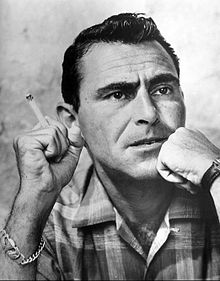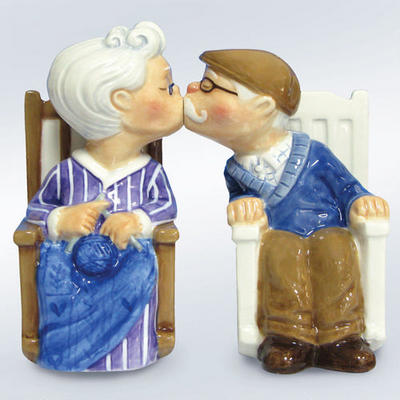During my teens I followed a TV series called Twilight Zone. Rod Serling hosted and wrote most of the shows — but not all.
One episode has stayed with me: Number 12 Looks Just Like You. John Tomerlin adapted it from Charles Beaumont’s 1952 story, The Beautiful People.

As I remember the story, people in some imagined future-world valued harmony. They thought unattractive people divisive and a threat to world peace.
They demanded that government use its powers to enable folks to better love and accept one another, which required that every member of society agree to a surgical procedure, called the transformation.
Surgeons transformed each person into one of a dozen archetypes — each archetype identified by researchers as appealing to all other people.

The heroine, 18-year-old Marilyn Cubele, decided against having the surgery because her father committed suicide after learning to regret his transformation — it cost him his identity, he said. Nevertheless, Marilyn’s friends and family pressured her to go along.
After all, everyone else was having the procedure, they argued. Did she really want to be less attractive around beautiful people?
Eventually Marilyn broke down and agreed.
The surgery went well. The doctors administered a drug to ease her mind; to help her accept what was done; to reduce chances of post-procedure depression like her father suffered.
In the last scene, Marilyn confides to her best friend. “Valerie, you know the nicest part…? I look just like you!

At about the same time another writer caught my attention, this time from print media. I began to collect and read everything available from the novelist Ayn Rand. I even subscribed to her newsletter, The Objectivist.
Ayn Rand marketed herself as a utopian idealist who believed capitalism and minimal government worked best for rational human beings. I attended a lecture by this unusual woman, and wanted to meet her, but that story is for another time.
Ayn Rand is relevant to this article on Xanax, because she wrote about an ideal world where reality forced a certain fairness on people and on society in general. If people did irrational things, their lives unraveled; they tended to fall into disarray. Rand believed happiness must be earned. It shouldn’t be acquired without intellectual effort. It wasn’t a birthright.
People were to strive for and achieve happiness through rational thought and action; by right-living. Joy was not something just anyone could bestow on themselves with a drug, legal or illegal. Rand could not imagine a future where people would display bad or irrational behavior yet continue to experience a comforting happiness, all because they took tranquilizers and antidepressants.

But now, decades after Ayn Rand’s death, researchers have learned that people may suffer depressions for no easily discoverable reasons. Depression, it’s now known, may have nothing to do with behavior or right-living. In some people, it is a chemical imbalance in the brain and hormonal system that could have any number of causes not necessarily related to behavior.
Because depression is the main reason for suicides, doctors often prescribe antidepressants and other mood-elevating drugs — like Xanax — to suffering people. The clinical results are often amazing.
Psychiatrists today spend much less time administering expensive and time-consuming therapies, like psychoanalysis and out-patient counseling. The right drug, properly prescribed, is sometimes all it takes to rescue people from their emotions-gone-awry.
In the 1960s and 70s, before tranquilizers and antidepressants were widely accepted and prescribed, most public schools required students to take Health Class as part of Gym.
Instructors taught that people suffering emotional distress had two options. They could change their environment — or change themselves. The third option — drug-rescue — wasn’t on the table. Many drugs available today hadn’t yet been invented.

I’ve never taken antidepressant drugs, so I don’t know how I might react to them. But I suffered for years from a heart arrhythmia called supraventricular tachycardia. Doctors prescribed a number of drugs to control it, including the mood elevating tranquilizer, Xanax.
Although it’s been a few years since my last exposure, I am familiar with Xanax, having used it daily for years during two separate periods. I quit the drug twice, once by tapering, and once suddenly — providing direct experience of its “dependency” properties, which for me at least were mild. Everyone is different and readers are advised to follow strictly only their doctor’s instructions.
For those who have never used it, the main thing I can tell you about Xanax is that it works as advertised. If you suffer from panic attacks (the cause of some episodes of tachycardia), Xanax stops them cold.
If you suffer from anxiety, Xanax stops that kind of suffering as well. The first time I took this brand of benzodiazepine, I dropped to my knees and thanked God for the people who invented it. Just knowing the drug is out there, gives me confidence to live without it. It’s that good, at least for me.

One thing I didn’t suffer while on Xanax was irritable bowel syndrome — an anxiety driven disorder that bothered me a lot when younger. Weeping stress blisters on my feet cleared-up completely.
Though baldness continued to plague me, social anxiety disappeared. I became somewhat fearless. I took risks in social situations unthinkable in pre-Xanax years. Most times, benefits outweighed risks.
Occasionally, I crossed boundaries with bad results. I still do but not as often. For some reason I want to believe that feeling the pain of social anxiety is morally superior to being dependent on a drug that eliminates it.
And truthfully, Xanax taught me what it felt like to live free, without fear. Once I knew it was possible — that my body and mind were capable of it — I let the drug go.
I guess I felt like Marilyn Cubele, the Twilight Zone girl, who didn’t want to be surgically transformed. It has something to do with the dignity of the human spirit, as writer John Tomerlin put it in Number 12.
I want to believe I can be happy without drugs — to think I can face life without a pill or injection to get me through.
The nicest part? — I want to be just like you.
Billy Lee
Note from the Editors: Despite the heroics claimed in his essay, Billy Lee continues to use Xanax to control anxiety and relieve the strain on his heart from chronic coronary artery disease. 26 November 2019
















